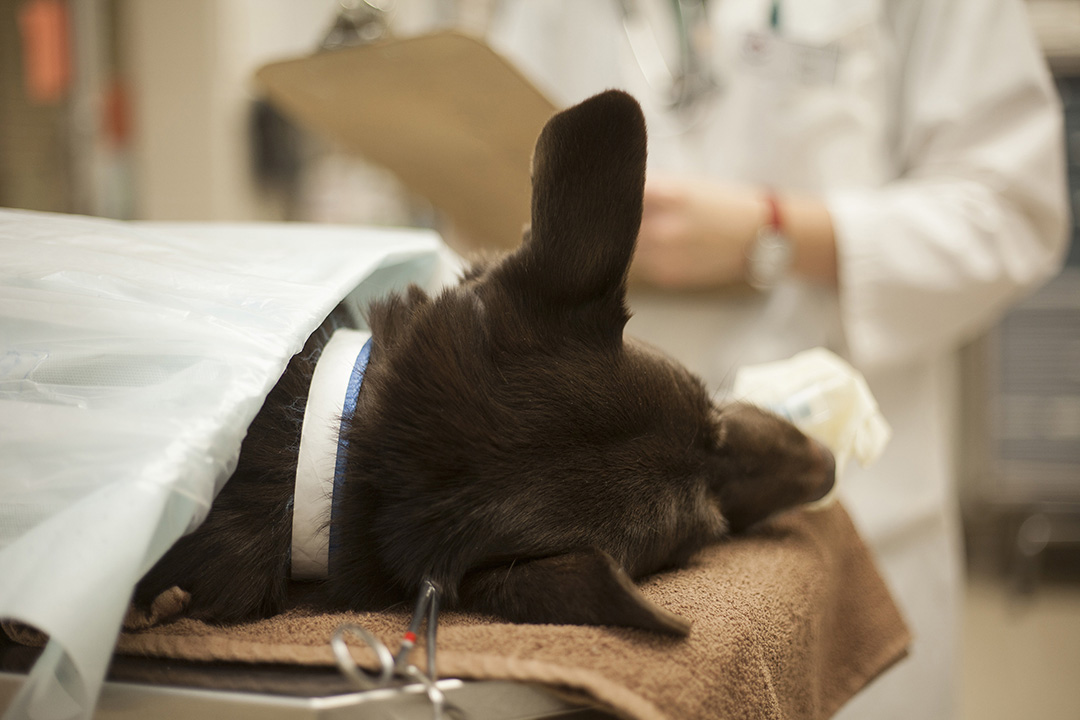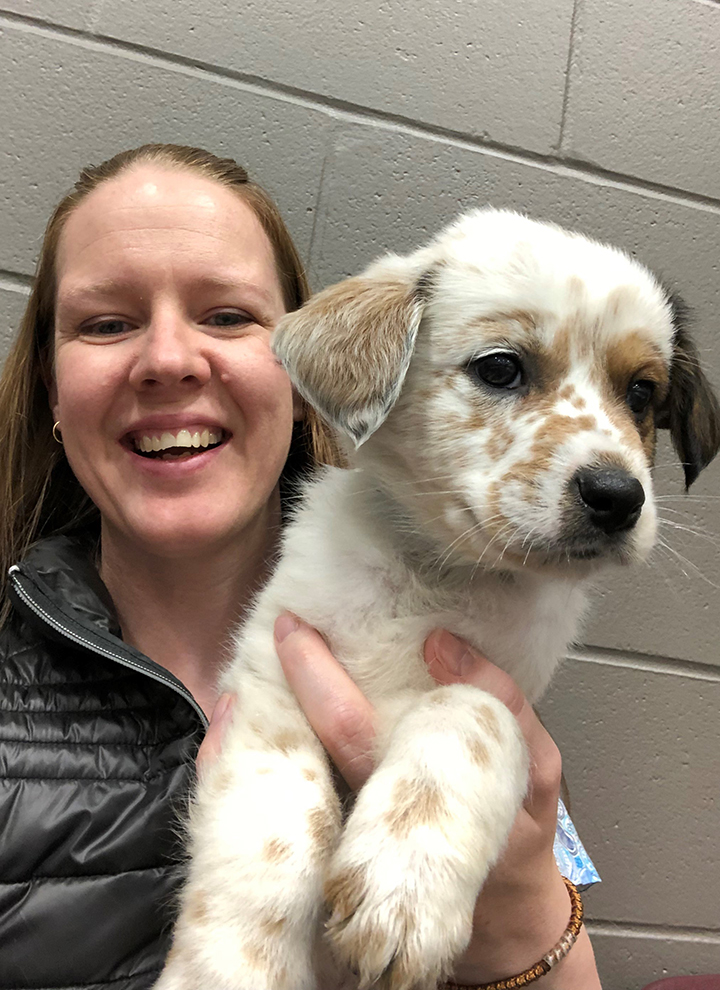
Hospital's triage service offers stress relief
An innovative triage program at the Western College of Veterinary Medicine’s Veterinary Medical Centre (VMC) is providing timely information and guidance to anxious owners who are seeking emergency help for their pets.<br/>
By Lynne GunvilleThe pilot program, which began in mid-May, is available to clients who call the VMC’s reception between 8 a.m. and 8 p.m. After leaving their phone number and a brief summary of the emergency, they’ll receive a call back from a veterinarian or a registered veterinary technologist (RVT) — usually within 10 to 15 minutes of their initial call.
“What we’re trying to assess is the necessity of seeing a veterinarian or not,” explains Dr. Dayle Borchardt, a clinical associate who helped to initiate the program. “They [the triage veterinarian or RVT] will ask some pertinent questions, try to assess the urgency, answer questions as needed and then recommend the best option for the client.”
While that option may be an immediate visit to the veterinary teaching hospital, many cases don’t need emergent care. In those situations, the triage representative may recommend that the clients book an appointment for the next available opening at the VMC.
In some situations the triage team member may just give advice on steps the pet owner can take at home or signs to watch for — indications that the condition is worsening and does require emergency care.
Triage team members have also been providing important information for veterinarians with questions about referring emergency cases to the VMC.
The triage program is a direct result of the COVID-19 pandemic that dramatically changed operations at the WCVM hospital. In mid-March, the veterinary medical centre shut down its regular clinical services and operated with small teams of clinical staff on eight-hour shifts around the clock.
Although the VMC was only available for emergencies and urgent cases, its case load grew substantially as many animal owners, unsure if they had an emergency, came to the veterinary teaching hospital looking for direction.
Dealing with a constant stream of cases was affecting the physical and mental health of clinical team members, says Borchardt, who has been helping to co-ordinate the hospital’s incoming cases by phone.

From the program’s onset, VMC staff have welcomed the triage system and the benefits that it provides. It’s helped to improve morale as clinical team members feel less overwhelmed and more supported. The VMC receptionists have also appreciated having the triage veterinarian or RVT available to advise clients on whether or not their pets need emergency care.
Based on initial results, the triage system is helping to streamline the hospital’s caseload so clinical teams have more time to focus on the immediate emergencies. Clients are also relieved that they can talk to a veterinarian or an RVT within a short time of having made a phone call to the hospital.
“The clients have been wonderful. In many cases it hasn’t been an emergency, and they just really wanted someone to reassure them of that. I think it’s been really beneficial for the general pet-owning public to have that access,” says Borchardt.
As businesses and services slowly reopen in Saskatchewan, plans are in place to continue operating the VMC’s triage service. As of June 15, the hospital increased its clinical services beyond emergencies and urgent cases to about 25 per cent of its regular capacity.
Borchardt says the triage program has proven its value in helping staff prioritize serious cases and assisting animal owners. She adds that her work on the triage program over the past few weeks has helped her to see the advantages for everyone involved – the staff, the pet owners and the pets.
“It’s been really rewarding as a veterinarian and as a wellness veterinarian, in particular,” says Borchardt. “I like to see the big picture as to the pets in their role in that family and how we can reduce stress in the home by ensuring that people have a place to call.
“When I can tell them something is not serious, their relief is palpable.”
Visit the WCVM Veterinary Medical Centre's COVID-19 information page for more details.
Article re-posted on .
View original article.

